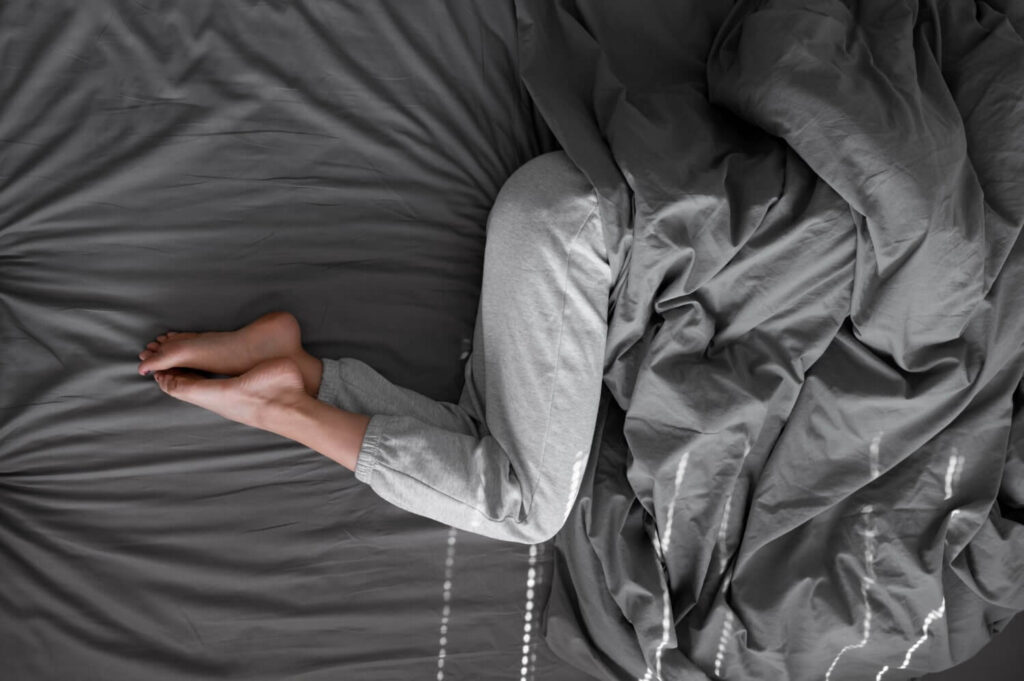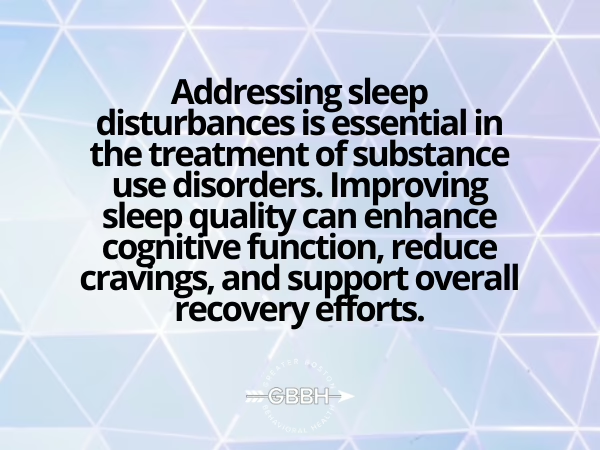In our fast-paced world, sleep often takes a backseat to work, social commitments, and entertainment. However, consistent sleep deprivation can have far-reaching consequences for both physical and mental health. When combined with addiction, the risks are amplified, creating a dangerous cycle that can be challenging to break.
The Impact of Sleep Deprivation on the Brain
Sleep is not merely a passive state of rest; it’s a critical process during which the brain repairs, restores, and consolidates memories. Chronic sleep deprivation disrupts these essential functions, leading to a cascade of negative effects.
- Cognitive Impairment: Sleep deprivation compromises attention, memory, problem-solving, and decision-making abilities.
- Mood Disorders: A lack of sleep can exacerbate symptoms of depression, anxiety, and irritability.
- Weakened Immune System: Insufficient sleep reduces the body’s ability to fight off infections, making individuals more susceptible to illness.
These cognitive, emotional, and physical impairments can significantly impact daily life and increase the risk of accidents and errors.
Addiction and Its Effect on Sleep
Addiction to substances or behaviors often disrupts sleep patterns, creating a vicious cycle of sleep deprivation and increased cravings. Stimulants like cocaine and methamphetamine can directly interfere with sleep, while depressants like alcohol and opioids may initially induce sleep but lead to fragmented sleep and rebound insomnia.
The consequences of this sleep-deprived state include:
- Intensified Cravings: Lack of sleep can heighten the desire for substances, making it more difficult to resist cravings.
- Impaired Decision Making: Sleep deprivation can cloud judgment, making it harder to resist impulsive behaviors associated with addiction.
- Increased Risk of Relapse: Sleep disturbances can trigger stress and irritability, increasing the likelihood of relapse.
The Dangers of Combined Sleep Deprivation and Addiction
The convergence of sleep deprivation and addiction creates a perilous cycle that significantly impacts both physical and mental health. When these two issues coexist, the risks are amplified, making it increasingly difficult to break free from the grip of either problem.
Increased Risk of Accidents and Injuries
Sleep deprivation impairs cognitive function, judgment, and motor skills, while many substances directly affect these abilities. The combination of the two significantly increases the risk of accidents, including car crashes, workplace injuries, and falls.
Heightened Vulnerability to Mental Health Issues
The interplay between sleep deprivation and addiction can exacerbate existing mental health conditions or trigger new ones. Depression, anxiety, and mood disorders often coexist with both sleep disturbances and substance abuse, creating a complex interplay of symptoms.
Weakened Immune System
Chronic sleep deprivation suppresses the immune system, leaving individuals more susceptible to infections and illnesses. Addiction further compromises the body’s defenses, making individuals particularly vulnerable to health complications.
Impaired Decision Making and Judgment
Both sleep deprivation and addiction impair decision-making abilities. When combined, these factors can lead to impulsive behaviors, poor choices, and increased risk-taking.
Strategies for Improving Sleep Hygiene
Prioritizing sleep is essential for optimal health and well-being. Establishing healthy sleep habits can significantly improve sleep quality and duration.
- Create a Sleep-Conducive Environment: Ensure your bedroom is dark, quiet, and cool. Invest in comfortable bedding and create a relaxing atmosphere.
- Establish a Consistent Sleep Schedule: Maintain a regular sleep-wake cycle by going to bed and waking up at the same time each day, even on weekends.
- Limit Screen Time: Reduce exposure to electronic devices, such as smartphones, tablets, and computers, at least one hour before bed. The blue light emitted by these devices can interfere with sleep.
- Manage Stress and Anxiety: Incorporate relaxation techniques like meditation, deep breathing, or yoga into your daily routine to reduce stress levels.
- Optimize Your Diet: Avoid heavy meals, caffeine, and alcohol close to bedtime.
- Regular Exercise: Engage in regular physical activity, but avoid intense workouts close to bedtime.
Seeking Professional Help with Greater Boston Behavioral Health
Greater Boston Behavioral Health offers comprehensive mental health and addiction treatment programs designed to support individuals on their path to recovery. Our team of experienced professionals provides compassionate care and evidence-based treatment in a supportive environment.
Our Services
- Mental Health Treatment: Addressing a wide range of mental health conditions, including depression, anxiety, bipolar disorder, and trauma.
- Addiction Treatment: Offering comprehensive programs for substance abuse recovery, including detoxification, residential care, and outpatient services.
- Dual Diagnosis Treatment: Addressing co-occurring mental health and substance abuse disorders.
Why Choose Greater Boston Behavioral Health?
- Experienced Professionals: Our team consists of skilled therapists, psychiatrists, and support staff.
- Personalized Treatment Plans: We develop individualized care plans to meet your specific needs.
- Evidence-Based Therapies: Our treatment programs incorporate proven therapeutic approaches.
- Supportive Environment: We create a safe and nurturing space for healing and growth.
To learn more about our programs or to schedule a consultation, Call now or contact us today to get help and guidance from one of our trusted GBBH staff members at (888)278-0716.
FAQs on Hidden Dangers of Sleep Deprivation and Addiction
How does sleep deprivation contribute to addiction?
Sleep deprivation can increase cravings, impair judgment, and weaken the body’s resistance to addiction.
Can poor sleep cause addiction?
While sleep deprivation doesn’t directly cause addiction, it can be a contributing factor by increasing vulnerability.
Does addiction affect sleep quality?
Yes, substance abuse often disrupts sleep patterns, leading to insomnia, sleep apnea, and other sleep disorders.
How does sleep deprivation affect the brain?
Lack of sleep impairs cognitive function, mood regulation, and decision-making, making it harder to resist addictive substances.
Can sleep deprivation weaken the immune system?
Yes, sleep deprivation compromises the immune system, making individuals more susceptible to illness.
How does sleep deprivation increase the risk of accidents?
Sleep deprivation impairs judgment, reaction time, and coordination, increasing the risk of accidents and injuries.
What types of addiction does Greater Boston Addiction Centers treat?
We offer comprehensive treatment for a wide range of substance abuse disorders, including alcohol, opioids, stimulants, and other drugs.
Do you offer treatment for mental health conditions?
Yes, we understand the connection between addiction and mental health. Our programs address co-occurring disorders.
What levels of care do you offer?
We provide a continuum of care, including outpatient, intensive outpatient, and residential treatment programs.


